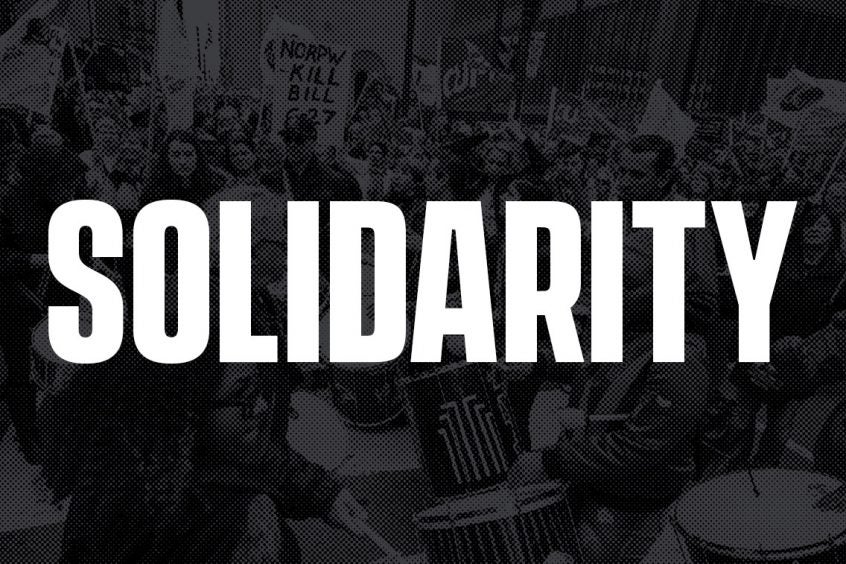The 55 unions represented on the Canadian Council of the Canadian Labour Congress (CLC) recognize without exception that when one of our affiliates is attacked, our movement is attacked.
Therefore, the CLC condemns, in the strongest possible terms, the decision and actions of the Unifor leadership to disaffiliate from the CLC and raid the members of UNITE HERE! Local 75 in the Greater Toronto Area. Raiding a union is a deplorable act that is irreconcilable with the principles of solidarity on which our movement was founded. The actions of Unifor are made worse when they defend their raiding activities with nationalist justifications and wholesale attacks on international unions.
Our Congress is made up of national, international and provincial unions from both the private and public sectors. The solidarity between these unions is where our movement derives its strength and integrity. The contribution to building our movement and defending workers’ rights and human rights in Canada by our international affiliates cannot be discounted, disrespected, or dishonoured. The CLC will continue to value and defend all of our members from attacks on their unions regardless of whether they are provincial, national, or international.
It is this solidarity that has led to the enhancement of labour laws, expansion of the Canada Pension Plan, the comprehensive ban on asbestos, the creation of a Just Transition task force, the increase of the minimum wage in a number of jurisdictions, and the gains on leave for survivors of domestic violence, to name only a few.
The unions of the Canadian Labour Congress pledge to:
- ” Work together to protect our members from raids and organize the unorganized;
- ” Defend our members and their international unions from baseless attacks; and
- ” Recommit our efforts to the political action necessary to improve the lives of all workers.
The Canadian Labour Congress represents over 3 million workers and brings together Canada’s national, international, and provincial unions along with the provincial and territorial federations of labour and 107 district labour councils, whose members work in virtually all sectors of the Canadian economy, in all occupations, in all parts of Canada.
Signed by,
Hassan Yussuff
President
Canadian Labour Congress (CLC)
Marie Clarke Walker
Secretary-Treasurer
Canadian Labour Congress (CLC)
Donald Lafleur
Executive Vice-President
Canadian Labour Congress (CLC)
Larry Rousseau
Executive Vice-President
Canadian Labour Congress
(CLC)
Captain Dan Adamus
President
Canada Board
Air Line Pilots Association
International-Canada Board Office (ALPA)
Robert Ashton
President
International Longshore and Warehouse Union Canada (ILWU)
Brian Baker
National Executive Director
Directors Guild of Canada (DGC)
Robyn Benson
National President
Public Service Alliance of Canada (PSAC)
Harvey Bischof
President
Ontario Secondary School Teachers’ Federation (OSSTF)
David Black
National President
Canadian Office and Professional Employees’ Union (COPE)
Daniel Boyer
President
Quebec Federation of Labour (QFL)
Larry Brown
National President
National Union of Public and General Employees (NUPGE)
Anita Bryan
United Steelworkers (USW)
Chris Buckley
President
Ontario Federation of Labour (OFL)
Jessica Burnie
V-P Representing Workers with Disabilities
Danny Cavanagh
President
Nova Scotia Federation of Labour (NSFL)
Patrick Colford
President
New Brunswick Federation of Labour (NBFL)
Anouk Collet
United Food and Commercial Workers International Union (UFCW)
Bill Daniels
International Vice-President
International Brotherhood of Electrical Workers (IBEW)
Debi Daviau
President and CEO
The Professional Institute of Public Service of Canada (PIPSC)
Sharon DeSousa
Public Service Alliance of Canada (PSAC)
David Doyle
International Canadian Vice-President
Glass, Molders, Pottery, Plastics and Allied Workers International Union (GMP)
Danielle Dubuc
V-P Representing Workers of Colour
Jody Dukart
International Auditor/Teller
United Mine Workers of America (UMW)
Vince Engel
International Vice-President, Western Canada
International Association of Heat and Frost Insulators and Allied Workers (IAHFIAW)
James Given
President
Seafarers’ International Union of Canada (SIU)
Sam Hammond
President
Elementary Teachers’ Federation of Ontario (ETFO)
Mark Hancock
National President
Canadian Union of Public Employees (CUPE)
Glen Hansman
President
British Columbia Teachers’ Federation (BCTF)
Lorraine Hewlett
President
Northern Territories Federation of Labour (NTFL)
Len Hope
President
Congress of Union Retirees of Canada (CURC)
Larry Hubich
President
Saskatchewan Federation of Labour (SFL)
Milt Isaacs
Chief Executive Officer
Air Canada Pilots Association (ACPA)
James Jackson
Director of Canadian Affairs
Sheet Metal Workers’ International Association (SMWIA)
Patricia Knight
Teamsters Canada
Darrell LaBoucan
8th General Vice-President
International Association of Bridge, Structural, Ornamental and Reinforcing Iron Workers (IABSORIW)
Irene Lanzinger
President
British Columbia Federation of Labour (BCFL)
François Laporte
President
Teamsters Canada
Fred LeBlanc
13th District Vice-President
International Association of Fire Fighters (IAFF)
Justin Lemphers
President
Yukon Federation of Labour (YFL)
John Lewis
International Vice-President and Director of Canadian Affairs
International Alliance of Theatrical Stage Employees, Moving Picture Technicians, Artists and Allied Crafts of the United States, its Territories and Canada (IATSE)
Suzanne MacNeil
V-P Representing Atlantic Region Labour Councils
George MacPherson
President
Shipyard General Workers’ Federation of British Columbia (SGWBC)
Joseph Maloney
International Vice-President Eastern Canada
International Brotherhood of Boilermakers, Iron Ship Builders, Blacksmiths, Forgers and Helpers (IBB)
Joseph S. Mancinelli
International Vice-President and Regional Manager
Laborers’ International Union of North America (LIUNA)
Anthony Marco
V-P Representing Ontario Region Labour Councils
Brenda McAuley
National President
Canadian Postmasters and Assistants Association (CPAA)
Gil McGowan
President
Alberta Federation of Labour (AFL)
Paul Meinema
National President
United Food and Commercial Workers International Union (UFCW)
Steve Morrison
International Vice-President and Director of Canadian Affairs
United Association of Journeymen and Apprentices of the Plumbing and Pipe Fitting Industry of the United States and Canada (UA)
Patrick Murphy
Vice-President
International Longshoremen’s Association (ILA)
Kenneth G. Neumann
National Director
United Steelworkers (USW)
Martin O’Hanlon
President
Communications Workers of America, Canada (CWA/SCA Canada)
Casey Oraa
V-P Representing LGBTQ2SI
Yves Ouellet
Director General
FTQ-Construction
Mike Palecek
National President
Canadian Union of Postal Workers (CUPW)
Stan Pickthall
General Vice-President
International Association of Machinists and Aerospace Workers (IAM&AW)
Ron Piercey
International Vice-President
Bakery, Confectionery and Tobacco Workers and Grain Millers International Union (BCTGM)
Danielle Pohl
V-P Representing Pacific Region Labour Councils
Bill Pollock
President
International Union, United Automobile, Aerospace and Agricultural Implement Workers of America (UAW Local 251)
Carl Pursey
President
Prince Edward Island Federation of Labour (PEIFL)
Lionel Railton
Canadian Regional Director
International Union of Operating Engineers (IUOE)
Kevin Rebeck
President
Manitoba Federation of Labour (MFL)
Candace Rennick
Canadian Union of Public Employees (CUPE)
Dany Richard
President
Association of Canadian Financial Officers (ACFO)
Ian Robb
Canadian Director
UNITE HERE!
Carmen Rogers-Jones
V-P Representing Young Workers)
Ronald Rousseau
V-P Representing Aboriginal Workers
Jason Rowe
Canadian Vice-President
United Brotherhood of Carpenters and Joiners of America (UBCJA)
Mary Shortall
President
Newfoundland and Labrador Federation of Labour (NLFL)
Linda Silas
President
Canadian Federation of Nurses Unions (CFNU)
Stephanie Smith
National Union of Public and General Employees/ British Columbia Government and Service Employees’ Union (NUPGE/BCGEU)
Basia Sokal
V-P Representing Prairie Region Labour Councils
David Sparrow
National President
Alliance of Canadian Cinema, Television and Radio Artists (ACTRA)
Ainsworth Spence
V-P Representing Workers of Colour
Sharleen Stewart
International Canadian Vice-President
Service Employees International Union (SEIU)
Liz Stuart
President
Ontario English Catholic Teachers Association (OECTA)
Paul Thorp
President
Amalgamated Transit Union (ATU)
Scott Travers
President
International Federation of Professional and Technical Engineers (IFPTE
Terri Van Steinburg
President
National Union of the Canadian Association of University Teachers (NUCAUT)
Ann Waller
Labourers’ International Union of North America (LIUNA)
Alan Willaert
Vice-President from Canada
Canadian Federation of Musicians (AFM/CFM)
Pauline Worsfold
Canadian Federation of Nurses Unions (CFNU)
_____
OFFICIAL LETTER – PDF : Council-Statement-2018-02-05-EN
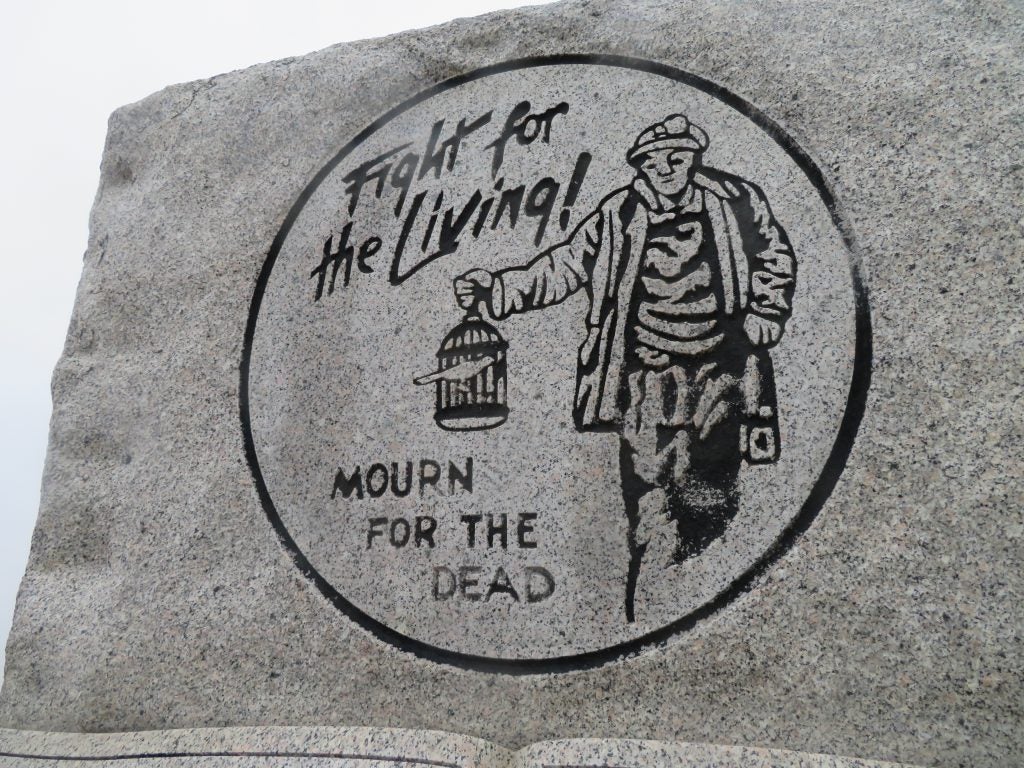

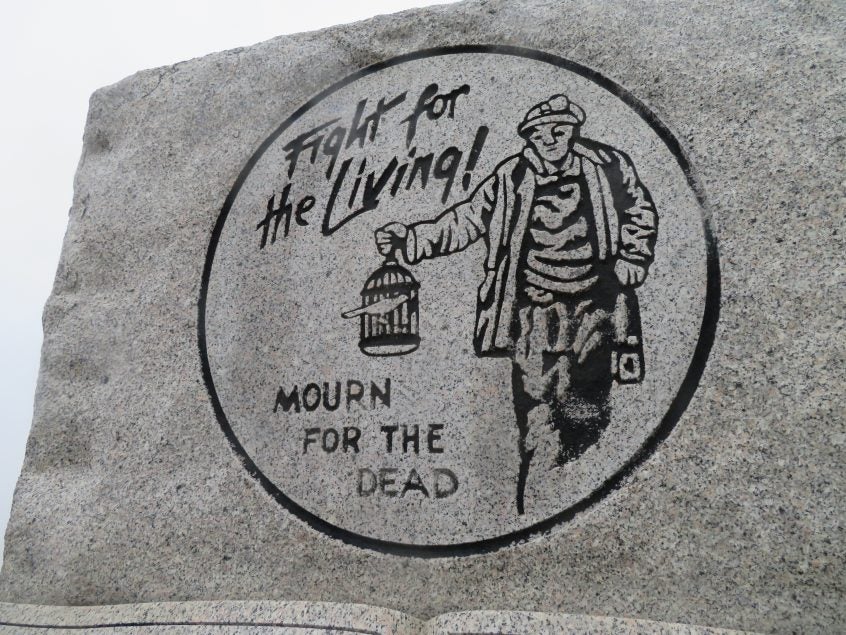
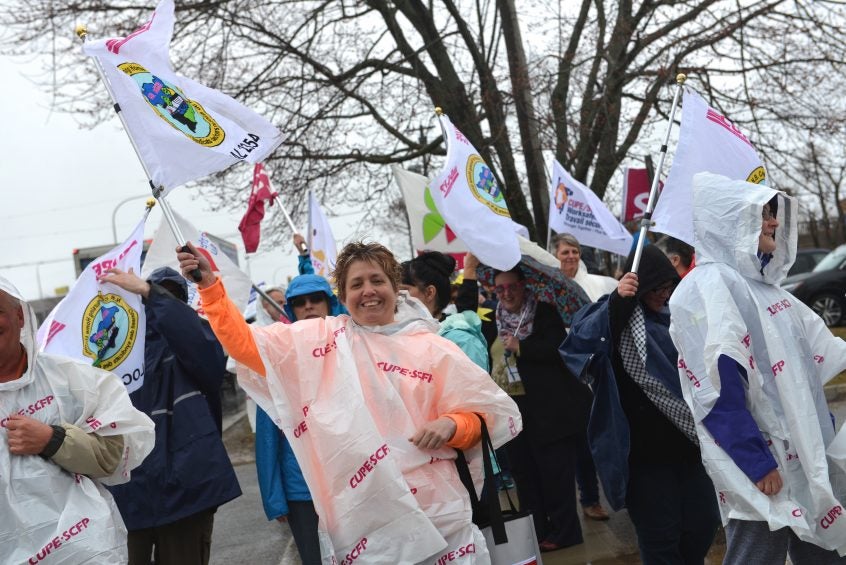
 employers in New Brunswick.
employers in New Brunswick.
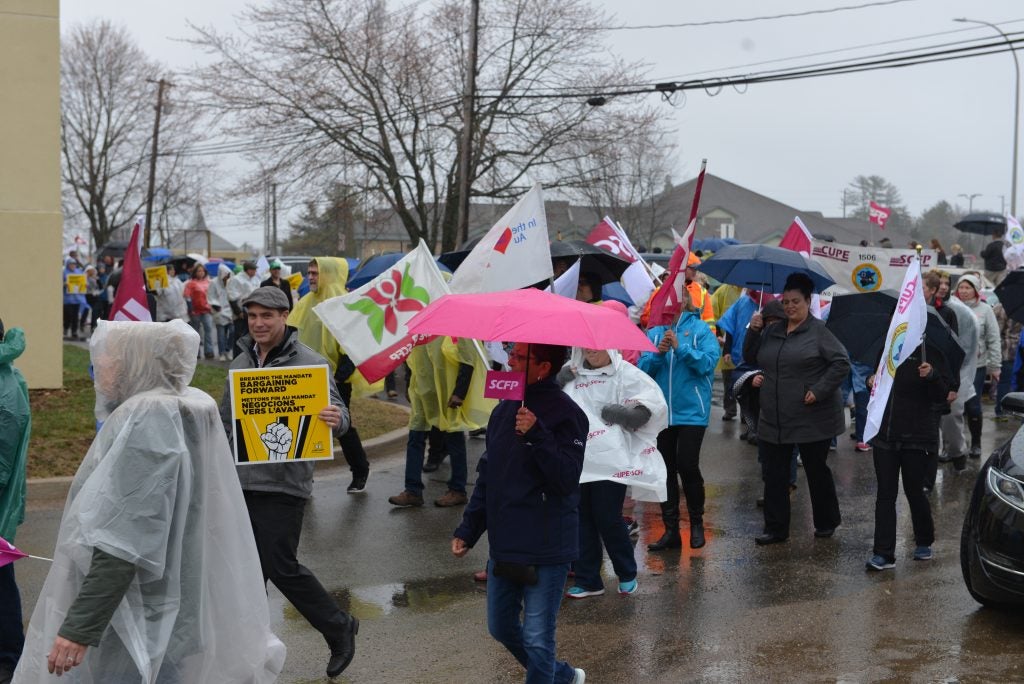
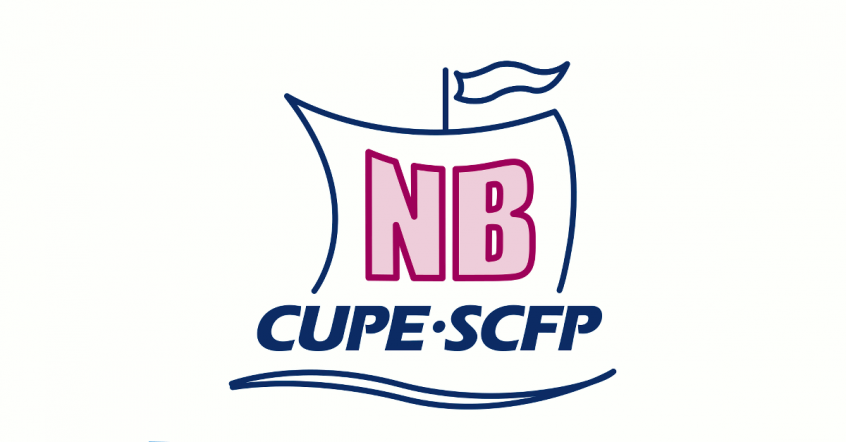



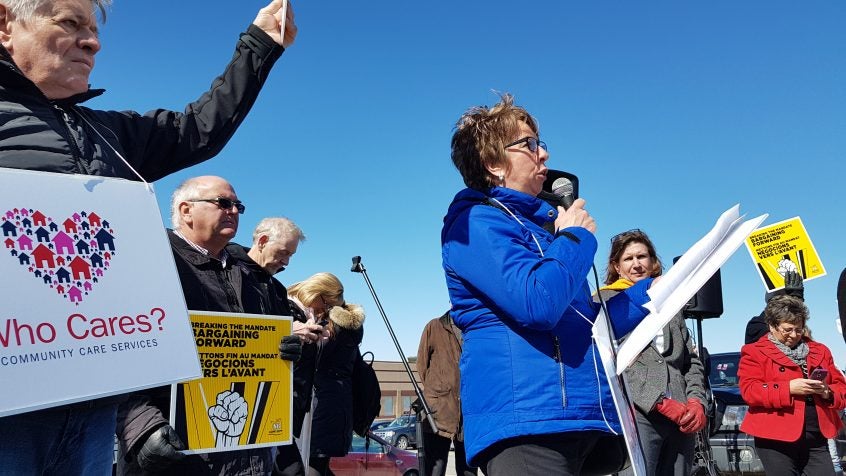

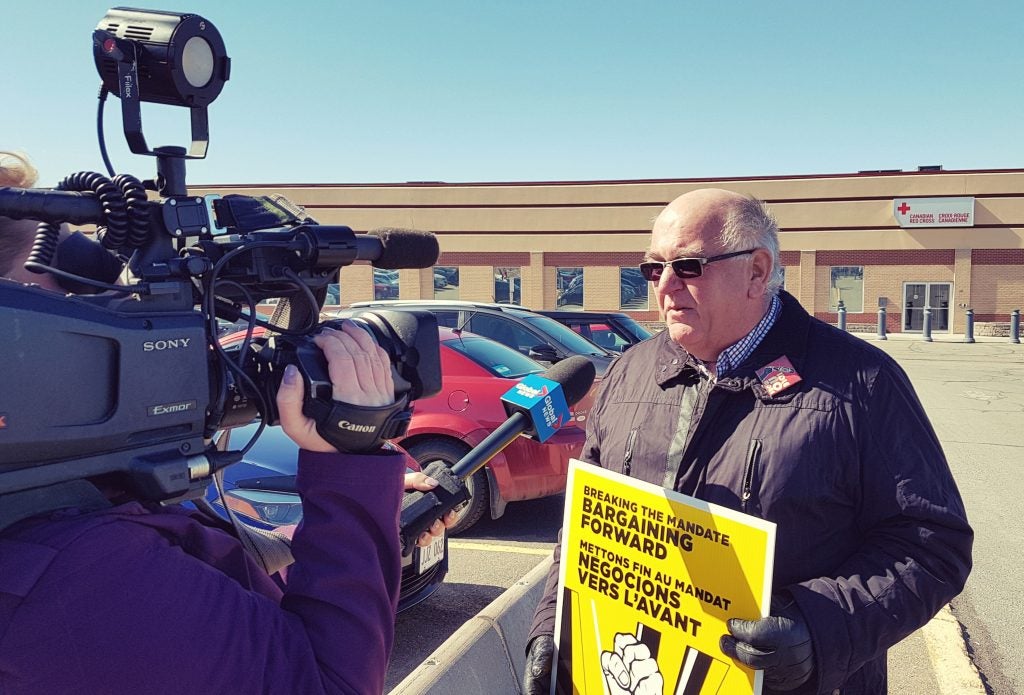
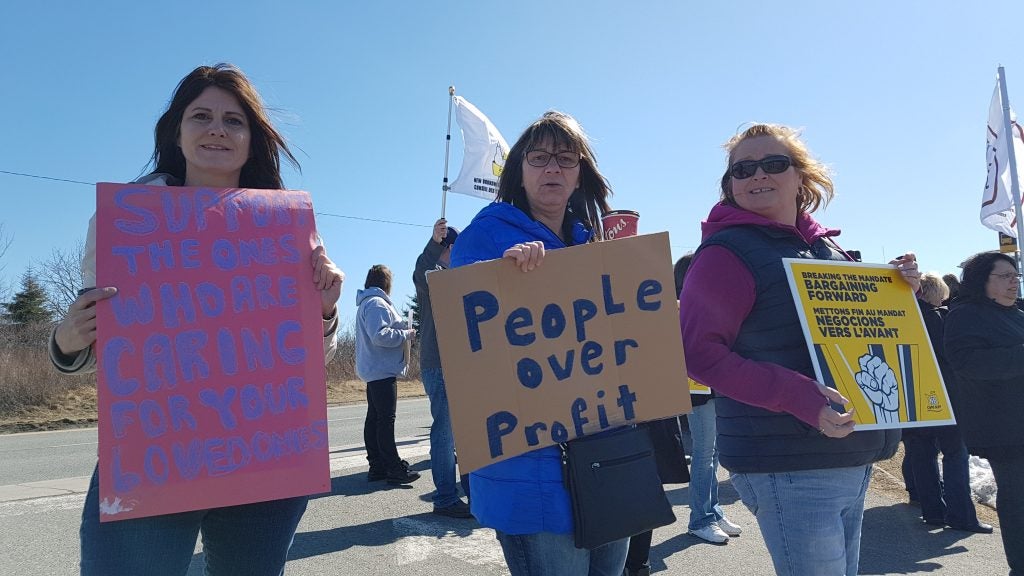
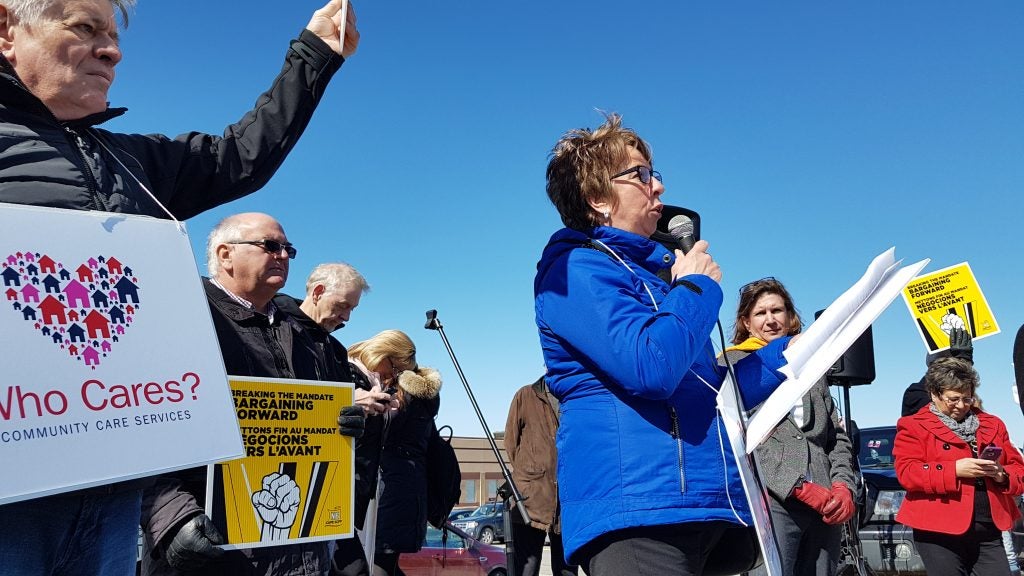


 This Thursday and Friday, close to 300 public employees and elected union leaders from all sectors have met at a bargaining conference called “Breaking the Mandate – Bargaining Forward”.
This Thursday and Friday, close to 300 public employees and elected union leaders from all sectors have met at a bargaining conference called “Breaking the Mandate – Bargaining Forward”.




